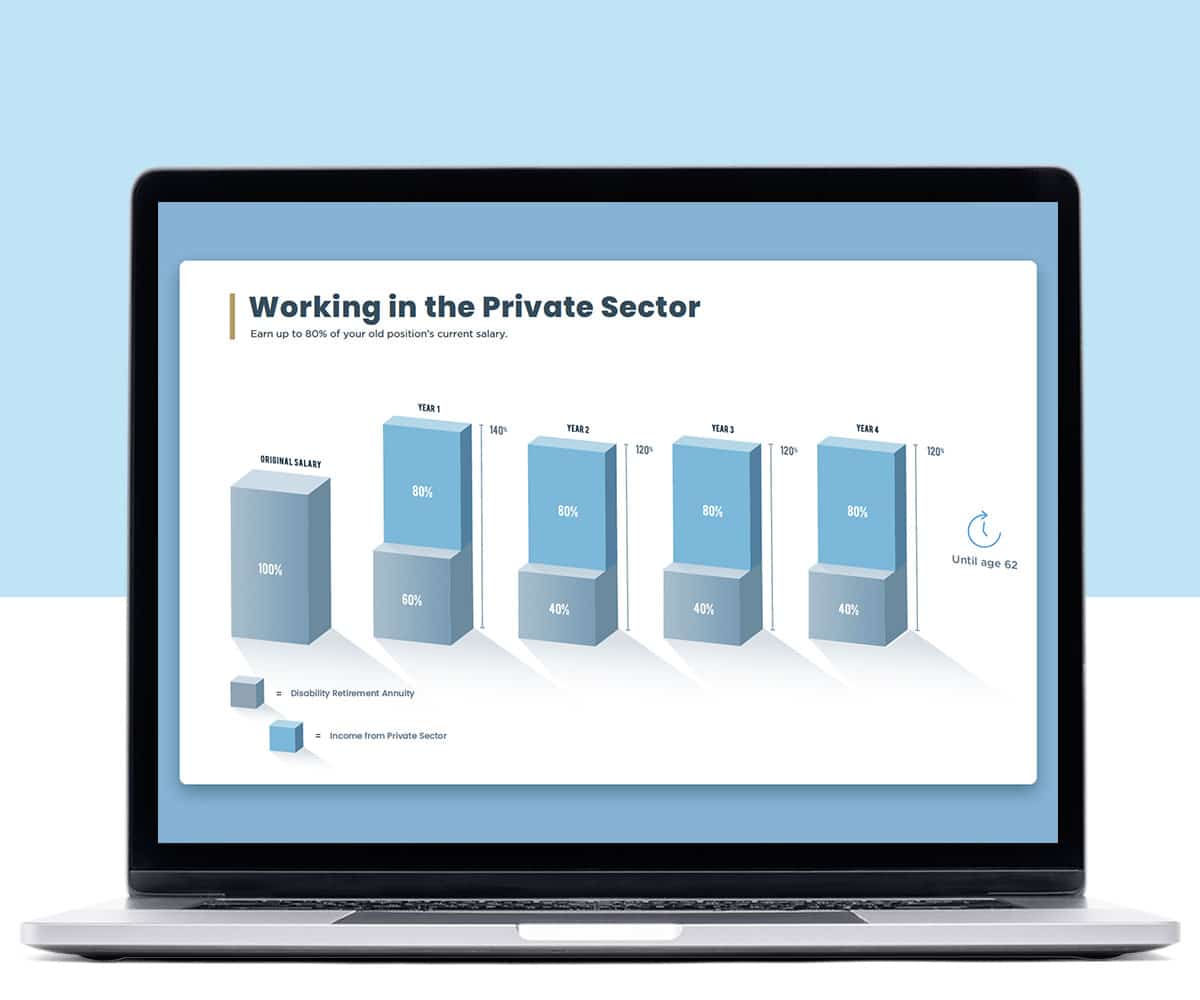When a veteran leaves the armed forces and enters a career in the federal government, they begin to intertwine two different retirement systems. Some employees buy their military service into their civilian service and combine the total years of employment under FERS (they could have also done this under CSRS, but we will be using the current system for this article.
But what happens when a veteran who has a disability rating from their military service becomes disabled from their civilian job? It can be confusing and not many people in, or out of the government understand how these benefits interact.
While we always suggest a consultation with a federal attorney or Chartered Federal Employee Benefit Consultant to discuss the particulars of your case, the general rule of thumb is that they don’t intersect or offset one another.
A Veteran Affairs disability check is given for a service connected disability and is different from your typical military retired pay. It is not based on the number of years you served, but rather the severity of the service connected injury.
A federal disability retirement is part of your civilian employment and once you have become eligible (18 months for FERS) you may apply if a disability prevents you from completing useful and efficient service.
It can seem like the same thing, but there is a very distinct difference. Let’s examine the scenario below.
Imagine that you were never in the military, but you injured you knee during college in an automobile accident and receive money for medical treatment and a small settlement, then recover to a near full capacity. You leave school and begin working for the government and the lingering issues are minor and do not affect your ability to do your job. You work there with no problems for 10 years.
At some point, your knee begins to bother you, unrelated to your employment. After pursuing conservative treatment with your doctor for a few years, you finally elect surgery. You work hard for a full recovery, but still do not return to a full capacity.
Like many people, you continue to try to do your job until one day you realize that you are not able to keep up with your duties and maybe your supervisor is starting to become impatient. It may be time to consider disability retirement. You can keep all of the hard-earned retirement benefits and keep some money coming in the door while you begin to look for a new career that fits within your medical requirements and constraints.
All of that is very normal. We have heard from thousands of federal employees in that exact scenario. Now we add the new wrinkle, VA Disability.
Imagine that same knee injury occurred in the line of duty while serving in the military. The VA awards a disability rating to the knee of 10% and you begin to receive a check. While maybe not a huge amount at once, those checks will add up to a significant amount over time. However, those checks from the VA have no affect on your federal employment or your subsequent federal disability retirement payments. You earned those FERS benefits while working as a civilian, not as military personnel and as such, the payments from the VA won’t affect what you are entitled to for your civilian career.
Remember, we suggest a consult with a qualified attorney before making these types of decision. Harris Federal Law Firm, works on both VA disability cases and federal disability retirement cases and are here to help you with the answers to your questions.



